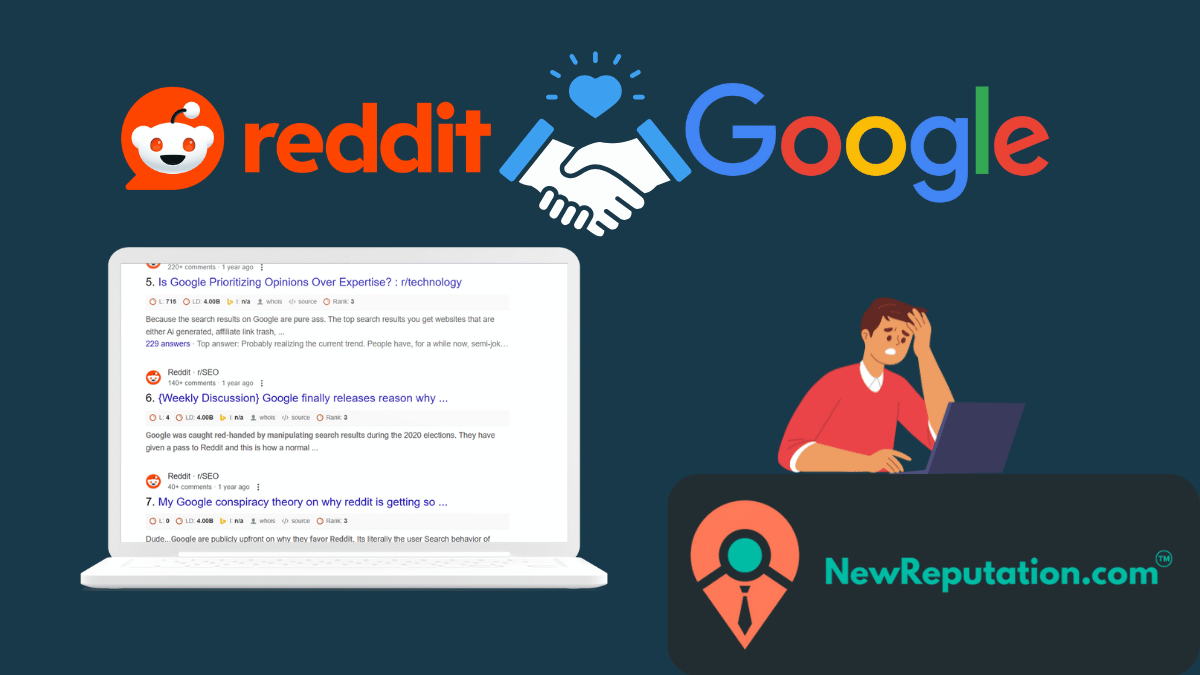Personal reputation management has become increasingly important as more and more of our lives are lived online. Your online presence can significantly impact your personal and professional life, and failing to manage your reputation actively can have serious consequences. Your online reputation can shape your perception, whether it’s potential employers conducting background checks or friends and family members searching for information about you.
This article will explore the principles of personal reputation management, including monitoring your online presence, creating positive content, and engaging with your audience to help you take control of your digital image and protect your reputation.
Understanding Personal Reputation Management
Personal reputation management is the proactive process of shaping how others see you, both online and offline. It’s about monitoring what’s out there, influencing how you’re perceived, and taking consistent action to build a positive image. Whether you’re a job seeker, business owner, or just someone who wants to make a good impression, your reputation matters. It goes beyond what people say, including everything from social media posts to search engine results.
A personal reputation management strategy involves controlling your narrative, responding to feedback, and maintaining a clear, authentic presence. This takes consistent attention and a comprehensive assessment of where your reputation stands today.
Managing your offline reputation is just as important as managing your online reputation. When done right, it helps open doors, build trust, and protect your name.
Benefits of Personal Reputation Management
Your online presence can affect your career advancement, your mental well-being, and even your safety. Employers, clients, and potential partners often look you up before making decisions. A single negative review, a piece of negative content, or a lapse in privacy protections can lead to provable harm.
In some cases, it’s not just about careless posts; it’s about malicious intent, like someone spreading false information or using copyrighted material without permission. That can cause emotional distress and long-term damage. A strong social media presence and a professional website help build trust, but they also need to be monitored and updated. Ignoring your reputation online opens the door to copyright infringement, invasion of privacy, and missed professional opportunities.
There are many benefits to personal reputation management. Here are just a few:
- Protect your privacy. In today’s digital age, protecting your privacy is more important than ever. Personal reputation management can help you control the information available about you online to keep your personal data safe.
- Build your professional image. A solid professional image is crucial in today’s competitive job market. Personal reputation management can help you build a positive online presence so potential employers can see your skills and experience.
- Land a job. An excellent personal reputation can help you land a job. Studies have shown employers are likelier to hire candidates with favorable online profiles.
Conversely, neglecting to manage your online reputation can have damaging consequences, including lost job opportunities, damaged relationships, and potential legal issues.
By monitoring your online presence, creating positive content, and engaging with your audience, individuals can actively manage their reputation and maintain a positive image in both their personal and professional lives.
Should you be worried about your personal reputation online?
With the prevalence of social media and online reviews, it’s easier than ever for others to form opinions about you based on what they find online. That’s why taking an active role in managing your online reputation is essential. Doing so can ensure that your online presence accurately reflects who you are and what you stand for.
For example, suppose you’re looking for a new job. In that case, potential employers will likely Google your name before inviting you for an interview. It could significantly impact their decision to hire you if they find negative or unprofessional content. Therefore, monitoring and controlling what’s being said about you online is essential.
Who Needs Reputation Management?
Reputation management isn’t just for celebrities or big brands. Anyone with a digital presence can benefit, especially those whose work depends on consumer trust, endorsements, or professional success. This includes small business owners, public advocates, entrepreneurs, and job seekers. Your personal brand is shaped by what people see online. If that picture isn’t accurate or flattering, it can hold you back. A strong reputation strategy helps ensure that media mentions, high-authority content, and social proof reflect your best qualities. When supporters and clients find positive stories or third-party validation, they’re more likely to trust you. That’s where online reputation management makes a difference. It builds credibility and keeps your good name protected.
Certain groups benefit the most from personal reputation management. For example:
- Job seekers. Background checks and pre-employment screening often include online searches. A strong online image helps land jobs.
- Doctors and CEOs. Negative reviews or press can hurt patient, employee, or stakeholder trust.
- Public figures. Celebrities, athletes, and politicians often face scrutiny. Managing their reputation is critical.
- Students and graduates. A clean digital presence can make a difference when applying for college or internships.
If you’re building a business, your personal and professional reputation directly impacts your success. Positive reviews and an active online presence lead to more clients and stronger partnerships.
What are examples of effective personal reputation management?
One effective strategy for managing your personal reputation is proactively monitoring your online presence by regularly searching for your name on search engines and social media platforms. This allows you to be aware of any negative information or comments being shared about you and to respond appropriately.
Another strategy is building a solid and positive online presence by regularly updating professional profiles on social media and other relevant platforms. This can include sharing thought leadership content, engaging with others in your industry, and showcasing your skills and accomplishments.
For example, if you are a freelance writer, you can create a blog or social media page to share your work and engage with other writers and readers to build a positive reputation in the industry.
The key to effective personal reputation management is to be proactive, monitor your online presence, and cultivate a positive image through thoughtful and consistent engagement with your audience.
Here are some effective personal reputation management strategies:
- Be aware of your online presence. It’s essential to be mindful of what’s being said about you online. You can do this by setting up Google Alerts for your name and checking your social media accounts regularly.
- Respond to negative feedback. If you see negative feedback about yourself online, responding professionally and respectfully is essential. Don’t get defensive or try to argue with the person who left the feedback. Instead, try to understand their perspective and address their concerns.
- Be positive and engaging. Share positive and exciting content on social media. This will help to create a positive impression of you online.
- Be authentic. Don’t try to be someone you’re not online. Be yourself and let your personality shine through.
- Be patient. It takes time to build a positive online reputation. Keep going even if you don’t see results overnight.
Following these tips can build a positive online reputation to help you achieve your goals.
Social Media’s Role in Personal Reputation Management
Social media has become an integral part of our lives. We use it to stay connected with friends and family, share our thoughts and experiences, and build our brands. But many people must realize that social media can also affect personal reputation management. With millions of users posting and sharing content daily, you must be mindful of your content and the image you portray online.
Your online reputation is the total of everything you say about yourself online. It includes your social media posts, online reviews, and search results. And while it’s impossible to control everything that is said about you online, there are things you can do to manage your online reputation and protect your brand.
One of the best things you can do is to be mindful of what you post on social media. Remember that a broad audience can see anything you post online, including potential employers, clients, and partners. Before you hit the post, consider how your words might be perceived.
Your social media profiles are an extension of your brand, and your posts can impact how others perceive you.
For example, suppose you’re trying to establish yourself as a thought leader in your industry. In that case, posting insightful articles and engaging in relevant conversations can help build your reputation as a knowledgeable professional.
On the other hand, posting controversial or offensive content can damage your reputation and potentially harm your career prospects. By proactively managing your social media presence, you can ensure that your online image aligns with your personal and professional goals.
You can use a free social media listening strategy to monitor what is said about you on social media. This way, you can quickly identify any harmful content and take steps to address it.
Finally, feel free to respond to negative comments and reviews. A well-crafted response can help to defuse a situation and protect your reputation.
Steps to Clean Up Your Online Profile
Your online profile is the first impression many people get of you. Keeping it clean and positive is essential. Here’s how to improve and maintain it:
- Search Yourself Online
Type your name into Google and see what appears. Take note of anything outdated, negative, or irrelevant. - Clean Up Social Media
Go through your social media accounts. Delete old posts, photos, or comments that might harm your image. Update privacy settings to control who sees your content. - Create Positive Content
Share achievements, write blogs, or post about your work. Publishing positive, engaging content pushes negative results lower in search rankings. - Update Professional Profiles
Keep your LinkedIn, personal website, and professional listings current. Add recent achievements, certifications, and work experience. - Remove Unwanted Information
Contact website owners to request the removal of outdated or inaccurate content. If that’s not possible, focus on creating new content to suppress it. - Monitor Regularly
Set up Google Alerts for your name to track new mentions. Address any issues quickly to keep your profile clean.
How to handle negative comments and online attacks
With the ease of sharing information online, negative comments or attacks can quickly spread and harm your reputation. However, there are steps you can take to handle these situations and protect your brand.
If you’re the target of negative comments or online attacks, staying calm and responding professionally is essential. Don’t take the bait and respond angrily, as this will only worsen the situation.
Instead, try to address the issue head-on. If the comment is inaccurate, you can correct it. If the comment is offensive, you can report it to the platform where it was posted.
You can also turn the situation around by responding with a positive comment. For example, if someone criticizes your work, you can highlight your accomplishments.
You can minimize the damage caused by negative comments and online attacks by staying calm and responding professionally.
Here is an example of how to handle negative comments or online attacks:
Let’s say a user posts a negative comment on your blog post. You have 3 options:
You could respond by:
- Ignoring the comment. If the comment is not offensive or inaccurate, you may want to ignore it. This will help to de-escalate the situation and prevent it from escalating further.
- Responding to the comment. You should respond to the comment directly if it is offensive or inaccurate. Be sure to do so calmly and professionally. You could explain why the comment is incorrect or offensive, or state that you disagree with the comment.
- Reporting the comment. If the comment is offensive or violates the platform’s terms of service, you can report it to the forum. The platform will then review the comment and take appropriate action.
It is important to remember that you cannot control what other people say or do. However, you can control how you respond to negative comments and online attacks. By staying calm and reacting professionally, you can minimize the damage caused by these attacks and protect your personal reputation.
How to build your personal reputation online
Whether you’re a freelancer, a CEO, or a job seeker, your online reputation can significantly impact your professional success. So, how can you build your personal reputation online? One of the most effective ways is to establish a solid and consistent brand across all your online platforms, including your website, social media profiles, and professional networks.
For example, you can use the same profile picture, handle, and bio across all your platforms to create a cohesive and recognizable online persona.
Additionally, regularly posting high-quality and relevant content, engaging with your audience, and responding to comments and messages help establish you as a credible and trustworthy professional.
Let’s say you’re a recent college graduate who is looking for a job in the marketing field. You can use social media to connect with potential employers and share your marketing skills and experience. You can also use your website to showcase your work and highlight your accomplishments. You can build a positive online reputation by being active online and sharing positive content, which helps you stand out.
Here are a few tips for building your personal reputation online:
- Be yourself. Don’t try to be someone you’re not online. People can spot a fake from a mile away.
- Be positive. Focus on the positive aspects of your life and career. Avoid posting harmful or controversial content.
- Be professional. Even if you’re not using social media for work, it’s crucial to maintain a professional image online. Avoid posting anything you wouldn’t want your boss or future employer to see.
- Be active. Participate in online discussions and share your thoughts and ideas. This will help you build relationships with others and establish yourself as an expert in your field.
- Be consistent. Post regularly on social media and update your website regularly. This will help you stay top of mind with potential employers, clients, and partners.
Should you hire a personal reputation management company?
Have you ever Googled yourself? If not, you should. Because chances are, potential employers, clients, and even friends are doing just that.
On the internet, it’s easy for anyone to find out anything about you, good or bad. That’s why it’s essential to have a professional reputation management company on your side.
A personal reputation management company can help you monitor your online presence, identify any negative information, and take steps to remove it. They can also help you create positive content about yourself and promote your positive image online.
Having a professional reputation management company can give you peace of mind knowing that your online reputation is in good hands. It can also help you achieve your personal and professional goals.
By having a professional manage your online reputation, you can ensure that your online presence accurately reflects your brand and values. This strengthens your personal brand and attracts like-minded customers who share your values.
Ongoing Maintenance and Engagement
Ongoing maintenance is what keeps a strong personal reputation from slipping. It’s not enough to post once and disappear. Reputation grows when you stay active, keep your audience informed, and respond when it counts.
Tools like Google Alerts and social media monitoring help you stay aware of what people are saying about you. Use feedback analysis to understand how your content is received and adjust as needed.
Regularly share in-depth articles, industry insights, videos, and high-quality photos to stay visible and valuable. Keep a consistent publishing schedule that includes podcasts, guest posts, and presentations.
If you’re short on time, content curation is a smart way to share knowledge without starting from scratch. A strong personal brand isn’t built in a day, but with ongoing attention and real engagement, it can last for years.
Seeking Professional Help
Sometimes, managing your reputation on your own isn’t enough. If you’re facing a reputation crisis or ongoing negative media coverage, it might be time to work with a personal reputation management specialist.
These experts know how to clean up search results, build professional profiles, and guide you through legal remedies when needed.
A good reputation management firm will tailor their approach to your situation, using case studies, client testimonials, and industry-specific forums to boost your credibility. They may also collaborate with a qualified attorney if your case involves defamation or privacy issues.
Whether you’re in the public eye or just need help protecting your name online, professional support can make the process faster, safer, and more effective. Look for firms that publish thought leadership content and have a history of success in online reputation management services.
Take Control of Your Reputation
Your reputation is an asset. It shapes how people view you and impacts every area of your life. By actively managing your online presence, you create trust, open doors, and protect against harm.
Don’t leave your reputation to chance. Build your brand, share positive content, and quickly address negative information.
Need help? NewReputation offers expert services to manage, repair, and promote your personal image. Contact us today to take control of your reputation.




